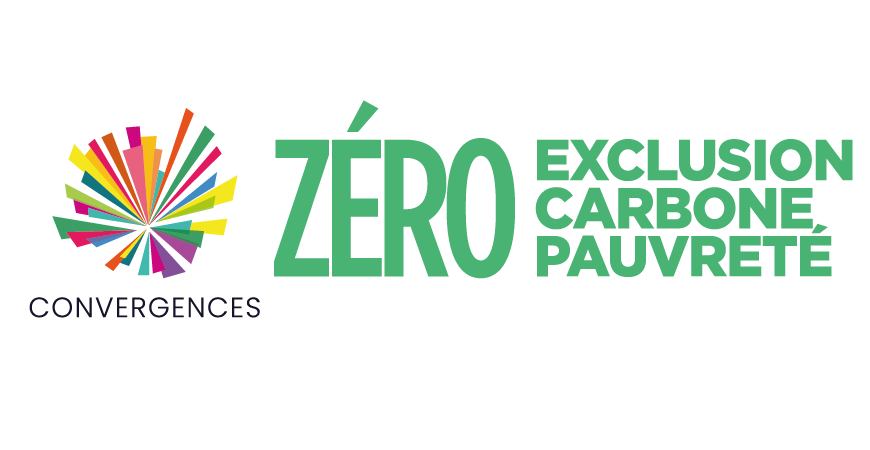 The development of corporate social and environmental responsibility (CSR) can be broken down into three stages: the covering of risks, the extension of the scope of responsibility beyond the company’s “walls” and eventually the search for a meaning and a new mission for the company in meeting the sustainable development challenges. The first initiatives to report on a company’s CSR performance in the early 1990s had only one objective: to demonstrate that certain risks (environmental, occupational safety, etc.) were well managed.
The development of corporate social and environmental responsibility (CSR) can be broken down into three stages: the covering of risks, the extension of the scope of responsibility beyond the company’s “walls” and eventually the search for a meaning and a new mission for the company in meeting the sustainable development challenges. The first initiatives to report on a company’s CSR performance in the early 1990s had only one objective: to demonstrate that certain risks (environmental, occupational safety, etc.) were well managed.
Inevitably, performance optimization was then added to risk management. Once both were monitored and measured, the most advanced companies were able to identify, for example, that reducing their energy consumption or accidents at work had a direct impact on costs and benefits. In the second half of the 1990s, several cases involving poor consideration of CSR in the supply chain pointed to the need to move CSR beyond the company’s walls. Hence, in the early 2000s, CSR strategies began assessing the performance of suppliers and customers.
Finally, the 2008 economic crisis, in addition to shaking the entire global economy, brought to the forefront of the debate the question of the very meaning of the economic activity.
Restoring the meaning of economic activity
Today, the search for meaning is at the heart of all the shareholders expectations: those of the younger generations, employees, customers, and society as a whole. This quest now starts to define the strategic orientations of tomorrow’s company. Larry Fink, President of BlackRock, one of the world’s largest asset managers, speaks to business leaders about “Purpose and Profit”. The French legislator provides in the “Loi Pacte” for a change in the historical corporate purpose of the company and opens up the possibility to acquire a “raison d’être”. The latter is a direct expression of the new meaning that the company seeks to give and communicate to all its stakeholders.
The United Nations Sustainable Development Goals, adopted in 2015, provide a framework for this reflection. They enable all actors, States and companies to measure and direct their actions towards sustainable performance. Since their adoption, there has been a strong and extremely rapid overall appropriation of SDGs in the private sphere1: from the VSE to the multinational, SDGs are used to express the purpose that companies want to give to their action, or even to their mission. Many investors now share these objectives as a common language, which allows them both to guide their investment policy and to explain the meaning they give to the funds they use.
We are therefore entering a new era in which a successful company will define itself differently, and will need to combine economic and social performance, while understanding and managing all of its impacts, both positive and negative.
Create a common reference framework for impact measurement
 A global framework for impact analysis has grown exponentially in recent years: the Impact Management Project (IMP). The IMP is an international forum for exchange on impact and its measurement. It brings together more than 2000 organizations (companies, investors, analytical specialists, economists, experts, etc.) that share best practices in impact measurement. The SDGs are by far the major underpinning of this global framework, forming a common language of impact.
A global framework for impact analysis has grown exponentially in recent years: the Impact Management Project (IMP). The IMP is an international forum for exchange on impact and its measurement. It brings together more than 2000 organizations (companies, investors, analytical specialists, economists, experts, etc.) that share best practices in impact measurement. The SDGs are by far the major underpinning of this global framework, forming a common language of impact.
Today, impact is therefore a key performance criterion for an organization: it allows it to report on its ability to analyze the major issues that could disrupt its ecosystem and therefore its economic efficiency. It is analysed both in the short term, with regard to an organisation’s resilience and its ability to understand and anticipate the risks, and in the long term, with a focus on the ability of management teams to seize the right opportunities and guarantee a sustainable license to operate.
While the Social purpose of organizations is at the heart of the public debate, SDGs can be the operational means of translating this “raison d’être” and measuring the companies’ impacts.
While the social purpose of organizations is at the heart of the public debate, SDGs can be the operational means of translating this “raison d’être” and measuring the companies’ impacts. Of course, at the level of each organization, the efforts put in place to address such major societal issues can sometimes seem negligible and lead to giving up. But no single organization has the solutions on its own, and this is one of the principles of impact measurement.
Hence, the analysis of performance in terms of social and environmental impact must be understood, at the level of an organization, in a global way by taking into account all the effects, positive and negative, generated on its global ecosystem in the broadest sense, and no longer only by measuring solely the direct effects.
1 https://www.pwc.fr/fr/espace-presse/communiques-de-presse/2018/decembre/vers-une-meilleure-integration-des-objectifs-de-developpement-durable.html
EMILIE BOBIN
PARTNER
PWC

